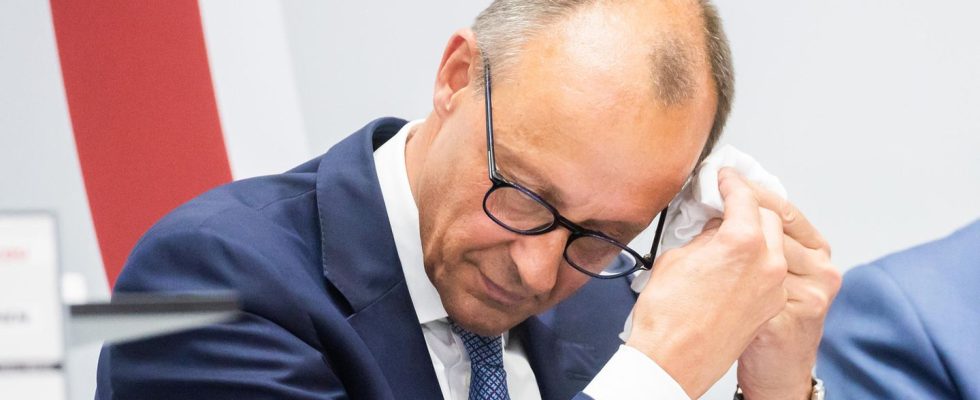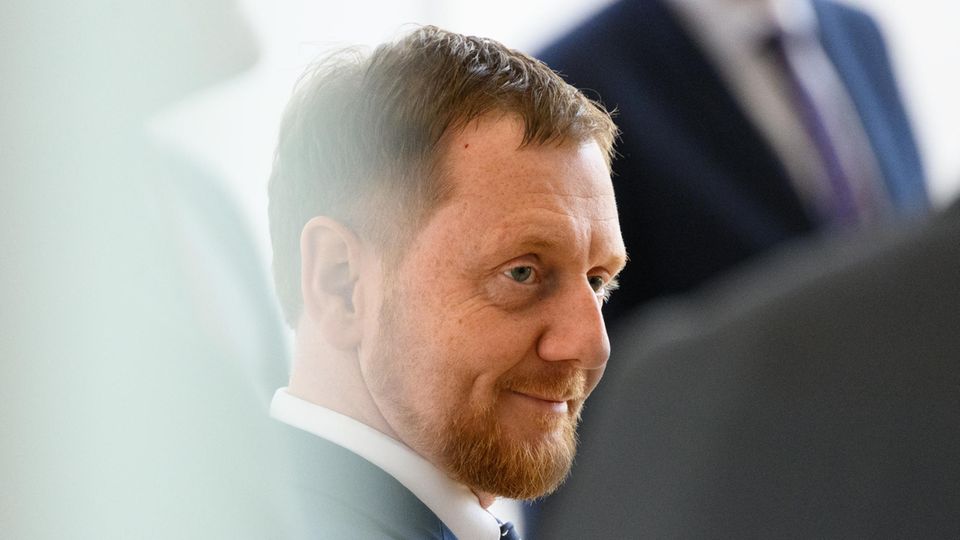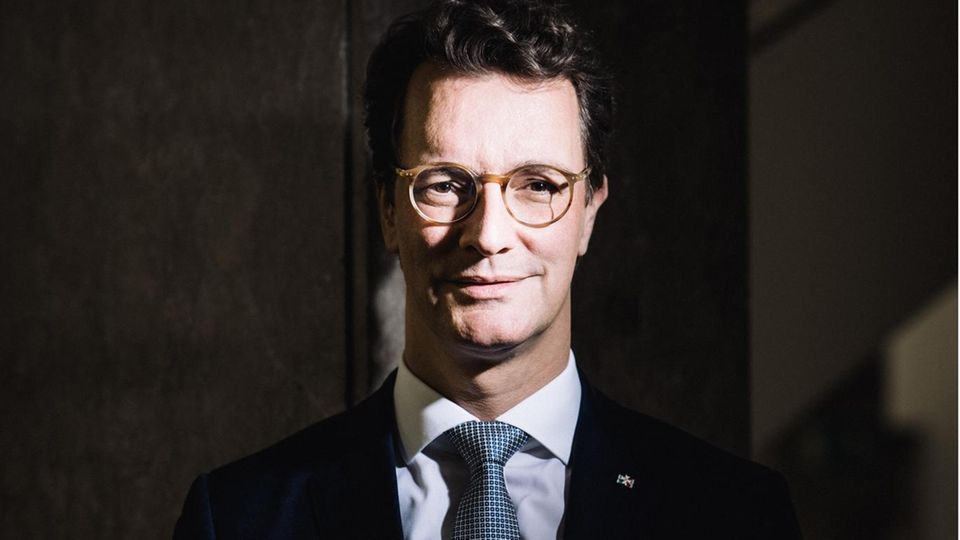Once he wanted to halve the AfD, Friedrich Merz has long since realized that it won’t work. But how to deal with the right-wing populists? A number of questions arise in the CDU – including the candidacy for chancellor.
It was all useless. The CDU even expressly wants to deal with itself, make a name for itself with fresh content and new perspectives – and then after a long weekend of self-discovery everything revolves around him: Friedrich Merz.
The Christian Democrats are struggling with their content and strategy. It is a lengthy process that began in spring 2022 and should culminate in a new basic program in 2024. Self-declared goal: to bring the CDU back to power. On Friday, work continued on the master plan at a small party conference, and on Saturday at a “Principles Convention”.
For a few weeks, a question has come into focus that the CDU leader cannot please: Is his course the right one, can he bring the CDU back to the Chancellery in this way? Or would it be better for another, popular man from the middle to stand up for the Union in the next federal elections? Hendrik Wüst, for example, the Prime Minister of North Rhine-Westphalia.
So far, Merz has been disciplined enough not to publicly fuel the smoldering personnel debate. Well, until now. On Sunday evening, the CDU chairman had to say something in the ZDF interview. It was a remarkable performance with equally remarkable statements.
In the conversation, Merz complained of a great deal of uncertainty throughout Germany – “also in North Rhine-Westphalia, by the way.” There, dissatisfaction with the state government is “almost as great” as with the traffic light coalition. And, not to forget, the AfD is “almost as strong” in NRW as it is in the federal government.
One could almost believe that the Westphalian Merz was seriously concerned about his home state. But only almost. It is true that the dissatisfaction of voters with black and green (55 percent) in NRW is growing – at least in comparison with the previous government – but it is not quite as dramatic as with the traffic light coalition (79 percent). The poll high for the AfD (15 percent) is also lower there than nationwide (18 to 19 percent). And so the conclusion is more likely that the CDU leader wanted to send out a completely different message: he can do without advice from NRW.
Because NRW Prime Minister Wüst, the most powerful of the CDU state leaders, had shortly before raised a number of questions in a guest article for the “Frankfurter Allgemeine Zeitung”, which he answered from his point of view: How should the Christian Democrats do politics? What language should they speak? And how should they deal with the right-wing populists? While reading, Merz should not have missed the fact that a) his name is not even mentioned in the explanations and b) the proposals made do not necessarily correspond to his ideas of the future course.
Did Friedrich Merz promise too much?
After two unsuccessful attempts, Merz was elected head of the CDU in order to give the CDU, which had been gutted after 16 years of government, an attractive profile again. And, as he formulated his claim in 2018, to “halve” the AfD – the project later turned out to be a pious wish.
Merz has stabilized the CDU again. It is currently at around 30 percent in the polls. But: It also stagnates there. Although the traffic light coalition is currently doing a lot to deter its voters, the Union can hardly benefit from the coalition partners’ constant turmoil. While the polls for the AfD are rising. And despite the desolate appearance of Olaf Scholz’s government, Merz continues to lose out on the Chancellor question.
Isn’t he good as a draft horse? The fact that the question arises is worrying enough for Merz. Another one may be more difficult: turn through the middle or turn right?
The Christian Democrats are divided on this question, and there are signs of a real conflict of direction. Some want to tackle the strengthening of the right-wing populists with a clearer speech, which also relies on “simple messages” (group leader Jens Spahn). According to Merz, the party must also be able to “address problems – sometimes with formulations that not everyone likes”. That was “not immediately to the right”, also “not immediately racist” or “AfD-speak”. Following this slogan, it is apparently also permissible to describe rebellious students with a migration background as “little pashas” – a statement to which Merz stands.
Other Christian Democrats, on the other hand, are calling for “politics with a heartbeat in the middle” (NRW Prime Minister Wüst) and warn that “populist banging on” (Schleswig-Holstein Prime Minister Daniel Günther) will not help the party.
How divided the party is on this fundamental issue is also shown in the evaluation of an appearance by ex-Olympic athlete Claudia Pechstein in her police uniform at the CDU convention. In a keynote speech, the former speed skater defended the “gypsy schnitzel” and criticized the “gender star”. In addition, she advocated the traditional family image of “mom and dad”. It was a populism best-of, which also contained pithy statements on asylum policy and deportations – and sounded suspiciously like the AfD sound.
And Merz? He praised the performance as “brilliant”, the content of the speech as “really interesting” and as a motivation to “continue working in this direction”. Not all Christian Democrats share this opinion. Will they follow him? Or rather Prime Minister of North Rhine-Westphalia Wüst, who suggested a different path in his guest post: “The CDU rejects divisive populism.”
Merz told journalists on Tuesday that he was “cooperatively and trouble-free” working with Wüst. But in view of the events of the past few days, one may well have doubts about that. Does he have the impression that Wüst is preparing for a chancellor candidacy? “You have to ask him that first,” Merz replied. He has the impression that the Prime Minister of North Rhine-Westphalia is “very interested in our mutual success.”
Either way, a debate has now begun that Merz didn’t actually want to have. The question of the chancellor candidacy will be decided in late summer 2024, the CDU leader had said repeatedly. It’s not impossible that he doesn’t have that much time left. Or is left.



